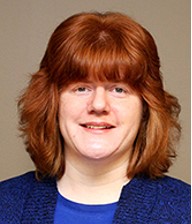By Meghan Hendricksen
Many older Americans, some of them disabled, badly need the support of a Social Security system they contributed to for most of their working lives. Often, that system does not provide nearly enough.
Two gerontology alumnae of the McCormack Graduate School have ideas about how to address that challenge. Kimberly Johnson and Elizabeth Johns, among the winners of an AARP competition seeking new ways to improve Social Security, presented their plan recently as the final spring semester guests of the UMass Boston gerontology speakers series.
Johnson is an assistant professor at the Indiana University School of Social Work. She graduated from UMass Boston’s Gerontology PhD program in 2013 and was a Hartford Doctoral Fellow in Geriatric Social Work. Her primary areas of research interest are productive aging and economic security of older adults. She currently serves as the chair of the Gerontological Society of America’s Public Policy Committee.
Johns is a faculty associate at the Center on Aging for the University of Maine. She graduated from UMass Boston’s Gerontology PhD Program in 2016, and her research interests focus on the economic well-being of older adults, particularly women.
In 2016, Johnson and Johns were awarded a grant from AARP’s Social Security Innovation Challenge. Their project focused on revising the minimum benefit in Social Security’s Old-Age and Survivors Insurance (OASI) program.
The reform proposed by Johnson and Johns addresses the benefits available to people with the lowest income (below 125% of poverty) and above age 80. Under their plan, Social Security would provide a supplement to help recipients reach at least poverty-level income. Also, all beneficiaries who had 10-19 years of employment would be assured a minimum income equal to 112 percent of the poverty level.



Leave a Reply